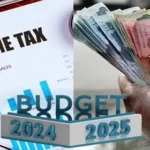The recent revelation of Pakistan Tehreek-e-Insaf (PTI) founder Imran Khan’s letter to the International Monetary Fund (IMF), urging an audit of the February 8 election results before approving any new loans for Islamabad, has sparked a contentious debate both domestically and internationally. This move, while ostensibly aimed at ensuring transparency and accountability in Pakistan’s electoral process, has significant ramifications for the country’s political stability and economic future.
Firstly, the call for an IMF audit of Pakistan’s polls underscores the deep-seated concerns regarding the legitimacy of the electoral outcomes. Allegations of rigging and electoral malpractice have long plagued Pakistan’s democratic processes, undermining public trust in the electoral system. Imran Khan’s insistence on an independent audit reflects the urgent need to address these systemic issues and uphold the principles of democracy.
However, the prospect of IMF involvement in scrutinizing Pakistan’s elections raises complex questions about sovereignty and external interference in domestic affairs. While international oversight may contribute to enhancing transparency, it also risks infringing upon Pakistan’s autonomy and sovereignty as a nation-state. Moreover, IMF intervention in electoral matters sets a precedent that could be exploited by external actors for political manipulation or interference in the future.
From an economic standpoint, the IMF’s role in assessing electoral integrity intersects with Pakistan’s ongoing financial challenges and dependence on international aid. Pakistan’s economy is grappling with a myriad of issues, including high inflation, mounting debt, and sluggish growth. Access to IMF funding is crucial for mitigating these economic pressures and stabilizing the country’s macroeconomic framework. However, the conditions attached to IMF assistance often entail stringent austerity measures and structural reforms, which can exacerbate social inequality and exacerbate economic hardships for ordinary citizens.
Imran Khan’s assertion that IMF loans obtained amid electoral uncertainty would only deepen Pakistan’s debt burden and perpetuate poverty underscores the trade-offs inherent in seeking international financial assistance. While IMF support may offer short-term relief, it also entails long-term obligations and constraints on national policymaking. Therefore, the decision to engage with the IMF must be carefully weighed against its implications for Pakistan’s economic sovereignty and social welfare.
Furthermore, the IMF’s response to Imran Khan’s letter underscores the complexities of navigating political and economic dynamics in the international arena. While the IMF expressed willingness to collaborate with the new Pakistani government, it refrained from directly addressing the call for an audit of election results. This nuanced stance reflects the IMF’s reluctance to wade into politically sensitive matters while prioritizing macroeconomic stability and governance reforms.
The debate surrounding the IMF’s potential role in auditing Pakistan’s polls underscores the intersecting dynamics of politics, economics, and governance. While transparency and accountability are essential pillars of democracy, the involvement of international institutions in electoral matters raises complex challenges and trade-offs. As Pakistan navigates its path forward, striking a balance between domestic sovereignty and international cooperation will be paramount in ensuring both political legitimacy and economic resilience. Ultimately, the quest for democratic integrity and economic stability must go hand in hand, with due consideration for the complexities of Pakistan’s domestic and international landscape.






























